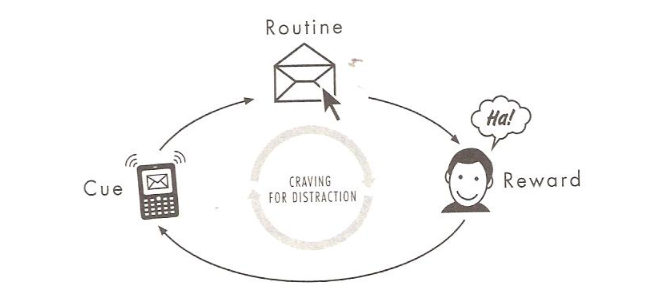Habit
A couple of months ago, a friend of mine recommended me the Coursera course on Learning How To Learn. The course was very light (an hour a week for the material and homework) and it covered topics like various Modes of Thinking, Procrastination, Chunking and Memory. I ended up learning a couple of things and I’d highly recommend this if you’re in school. This blog post is about one of my learnings from the course on how habits work.
The Habit Process includes 4 stages - cue, routine, reward and benefit. In order to understand the process, let us take the habit of checking the phone (messages, emails, notifications, Facebook feed etc) the first thing in the morning. This is a habit that most people would like to ditch (lets’ call this a bad habit). I believe the process also applies to habits that you’d want to persist (good habit).

Cue - The first stage of any habit is called the cue - the trigger to the habit. A cue could be a notification on your Facebook feed or a simple Post-It note on your laptop reminding you to finish the tasks for the week. In the above example, the cue was that the phone was right next to me when I wake up in the morning. The cue in itself is neither beneficial or harmful. It is our reaction to our cue that matters. As a result, if you’d like to change a bad habit, it would be best to identify the cues and avoid it at the very beginning.
Routine - The routine is the habitual response your brain is used to falling into when it receives the cue. For example, as soon as I see the notifications on my mobile phone in the morning, I’ll spend a few minutes clearing the notifications. The routine is often what people try to change (when it comes to changing the habit) but it is also the most difficult - as the routine is wired into our brain.
Reward - Every habit continues and develops because it rewards us. There is a immediate pleasure in performing the routine. In case of a bad habit, there is a cost to it in the long term.
Belief - The last stage of the habit process is the belief. It is the justification we give ourselves for the habit to grow - I need a phone to set an alarm so that I can get up early in the morning or I’ve one less thing to do by checking my emails. For you to permanently change any habit, you’ll need to change the underlying belief.
Kaushik Rangadurai
Code. Learn. Explore
